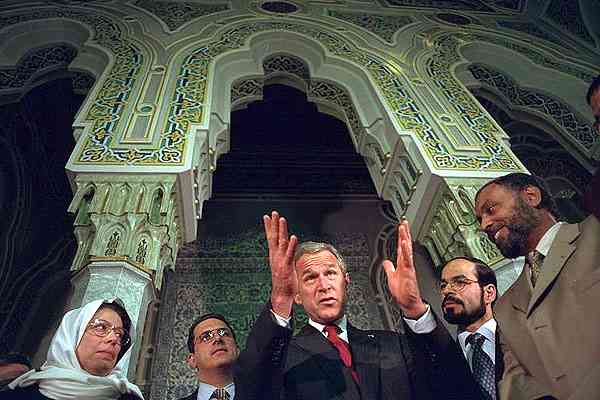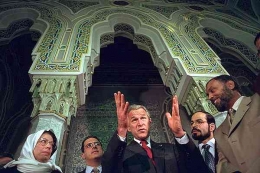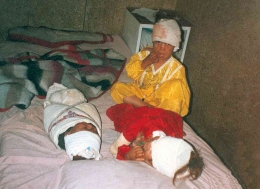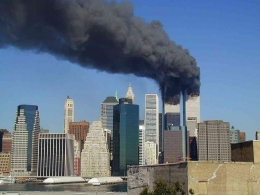According to Debra L. Oswald's research Following 9/11, the nation experienced an increase in hate crimes committed against people of Middle Eastern background, going from 354 cases in 2000 to 1,501 incidents in 2001.
In September 2007, Zohreh Assemi, an Iranian American Muslim nail shop owner in Locust Valley, New York, was robbed, beaten, and dubbed a "terrorist" in what investigators call a hate crime.
Assemi was kicked, slashed with a box cutter, and smacked with a hammer. The attackers, who took $2,000 from the salon and wrote anti-Muslim obscenities on the mirrors, also warned Assemi to "get out of town" and that her type was not "welcome" in the area. Friends and family say the incident came after two weeks of phone calls in which she was labelled a "terrorist" and ordered to "get out of town."
Ahmed H. Sharif, a taxi driver in New York, was attacked on August 25, 2010, after a passenger questioned as to his religion.
According to a statement from the New York Taxi Workers Alliance, Sharif, a father of four who arrived in the country from Bangladesh 25 years ago, has been operating a taxi for over 15 years. He said in the statement, "I've never felt this hopeless and insecure before.
Experts claim that the incident happened at a time when tensions in the city were particularly high due to plans to establish an Islamic center and mosque close to the scene of the terrorist attacks of September 11, 2001.
Human Rights Watch found that 20% of Arab-Americans surveyed in May 2002 had directly experienced prejudice since September 11. According to a July 2002 survey of Muslim Americans, 57% had seen bigotry or discrimination and 48% said their lives had worsened since September 11.
The U.S Equal Employment Opportunity Commission (EEOC) documented 488 complaints of employment discrimination, 301 of which were from people who had been fired. Similarly, by June 2002, the United States Department of Transportation (DOT) had reviewed 111 September 11th-related complaints from airline passengers who claimed that their religious or ethnic look had caused them to be marked out during security checks.
The incident has fueled long-standing Islamophobia in the United States.
George W. Bush and War on Terror Criticism
The war on terror, formally known as the "Global War on Terrorism" (GWOT), is an international counterterrorism military campaign launched by the United States in the following of the September 11, 2001 attacks.










